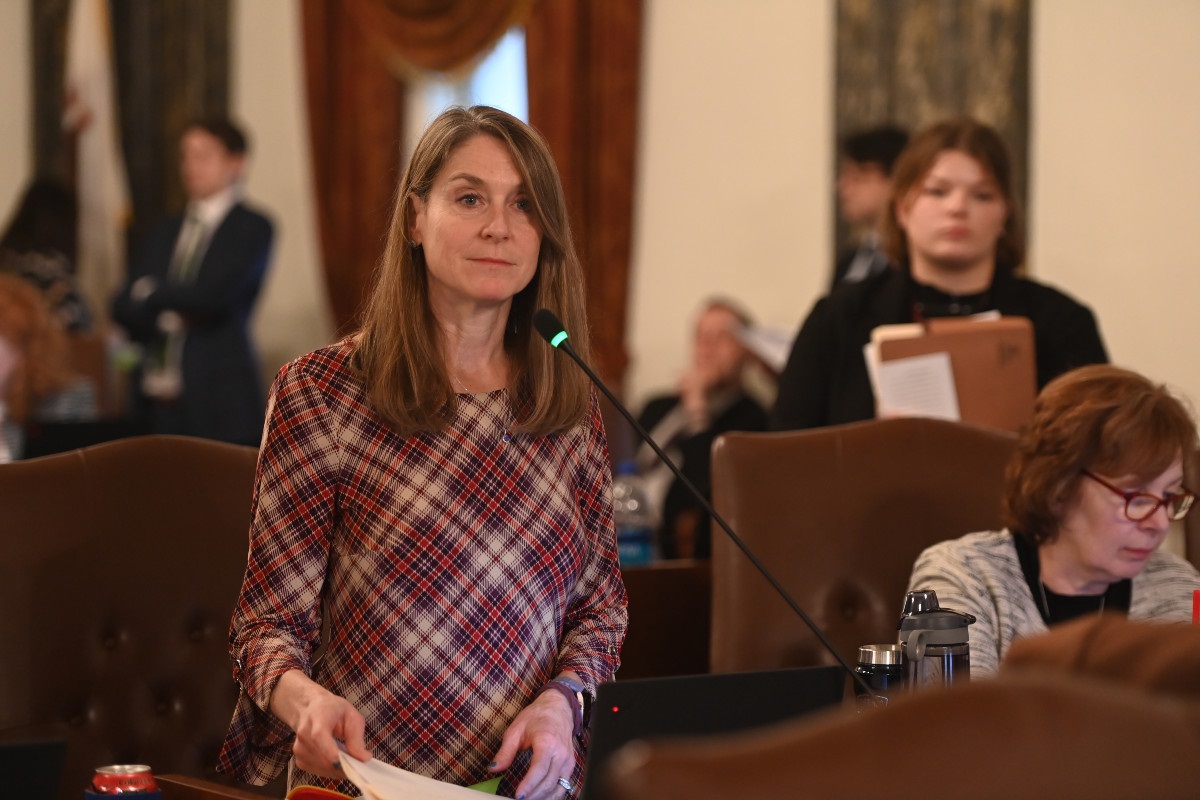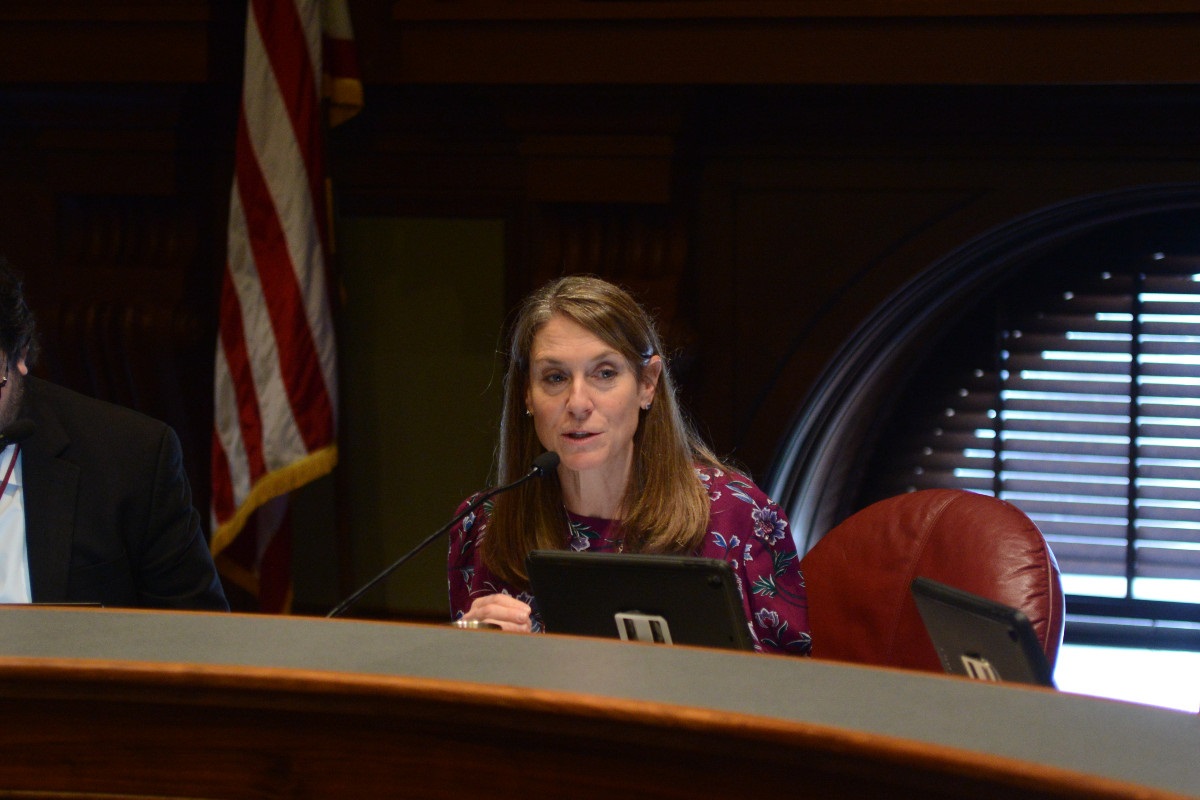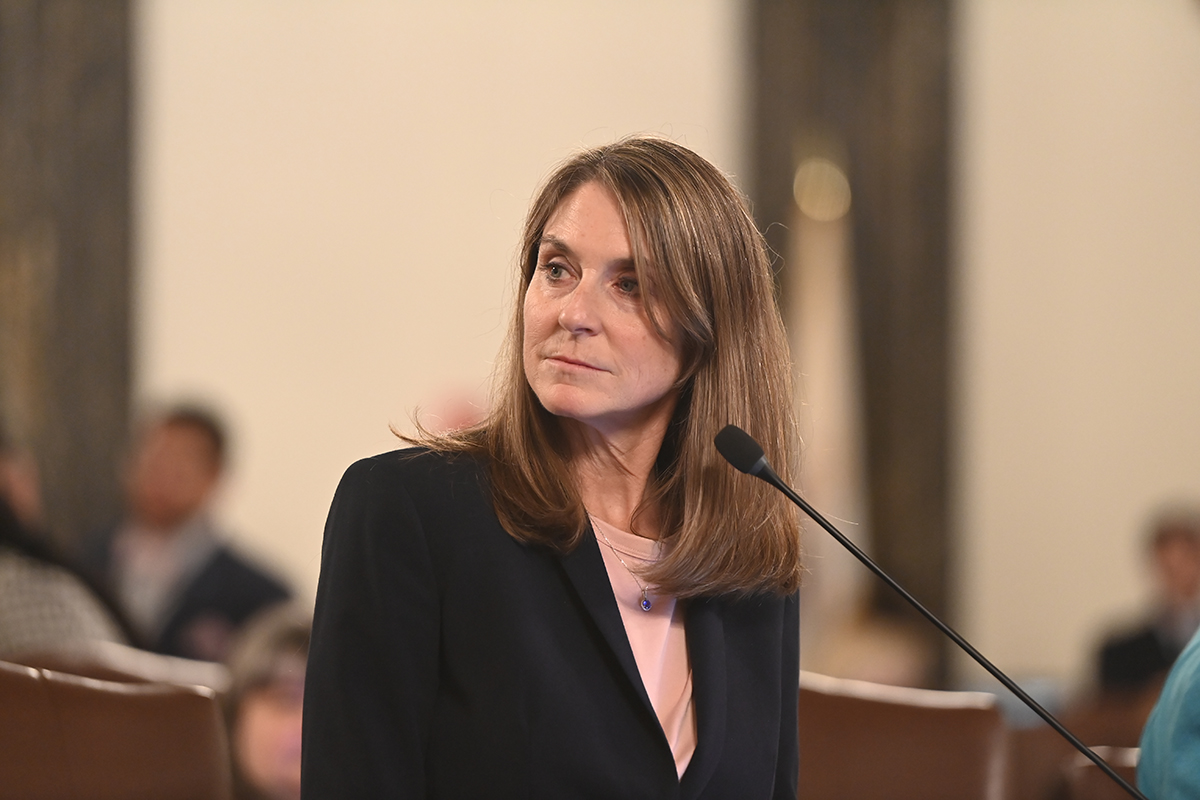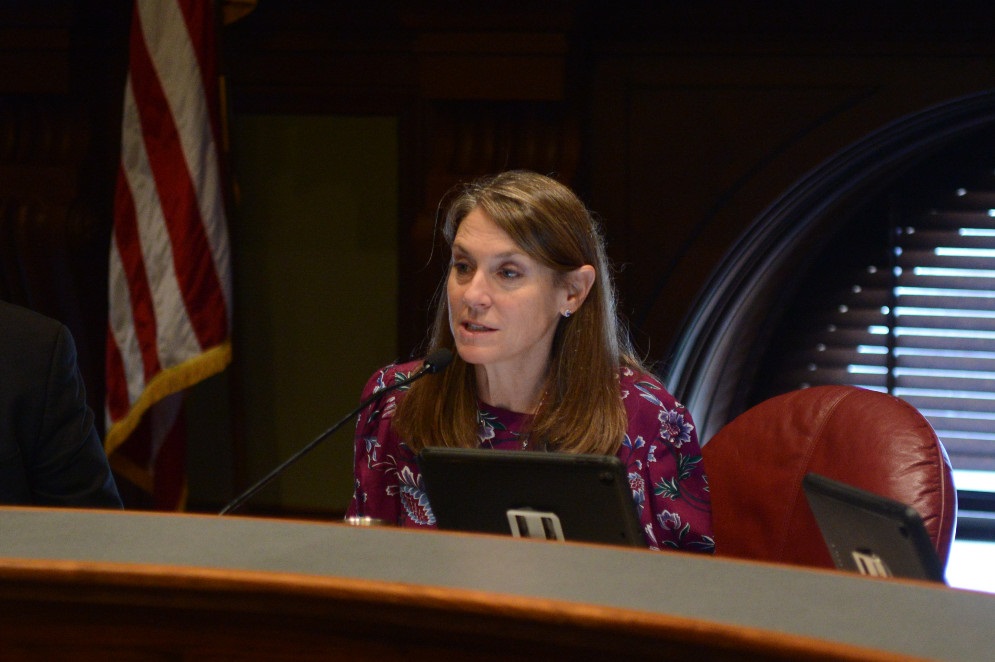- Details
- Category: Press Releases

SPRINGFIELD – State Senator Laura Fine’s proposed pilot program to provide first responders with 8-milligram naloxone kits to prevent overdose from opioids passed the Senate on March 23 —making it one step closer to becoming law.
“Increasing the dosage of naloxone will allow medical professionals more time to save lives,” said Fine (D-Glenview). “This is the best next step to preventing more devastation and loss of life due to opioid and drug addiction in our communities.”
In 2021, more than 3,000 people in Illinois died from an opioid overdose. Although emergency medical providers have access to 4-milligram naloxone nasal spray kits, that isn’t always strong enough to reverse an overdose.
To increase access to this essential treatment, Senate Bill 1402 would start a two-year pilot program through the Department of Human Services to provide FDA-approved 8-milligram naloxone nasal spray kits to licensed community substance use providers and public health departments in Cook, DuPage, Winnebago, Sangamon and St. Clair counties.
- Details
- Category: Press Releases

SPRINGFIELD – To make the transition to higher education smoother for students with disabilities, State Senator Laura Fine is sponsoring The Removing Barriers to Higher Education Act. This legislation will make it more convenient for students to provide documentation to the school to demonstrate that they have a disability.
“Under current law, students may have to undergo costly assessments to prove they qualify for disability services in college,” said Fine (D-Glenview). “This initiative will allow students to save time and money by allowing them to submit documentation of accommodations that they received during their K-12 years.”
Senate Bill 99 would establish a process for students with disabilities to receive reasonable accommodations from public universities and colleges. This measure defines the types of documents that state universities must accept as proof of a disability, including previous diagnostic testing or other recent documents. From this information, colleges and universities could provide reasonable accommodations that they deem to be appropriate for the student requesting the services. This will ensure that students will receive the support they need to thrive in higher education.
- Details
- Category: Press Releases

SPRINGFIELD – In 2021, more than 3,000 people in Illinois died from an opioid overdose. Although emergency medical providers have access to 4-milligram naloxone nasal spray kits, that is no longer strong enough to reverse an overdose. In response, State Senator Laura Fine is proposing a pilot program to provide first responders with 8-milligram kits.
“Opioid and drug addiction has been devastating to our communities and our state,” said Fine (D-Glenview). “Studies have found that multi-dosing of naloxone is needed to save lives. By increasing the dosage, this will save medical professionals valuable time in saving a life.”
To increase access to this essential treatment, Senate Bill 1402 would start a two-year pilot program through the Department of Human Services (DHS) to provide FDA approved 8-milligram naloxone nasal spray kits to licensed community substance use providers and public health departments in Cook, DuPage, Winnebago, Sangamon and St. Clair counties.
- Details
- Category: Press Releases
 SPRINGFIELD – Obtaining official transcripts can be a roadblock for college and university students across Illinois if they owe a past-due debt to the institution. This can hamper their efforts to pursue post-graduate opportunities. State Senator Laura Fine introduced legislation to address this issue, making transcripts more accessible to students, as well as requiring universities to make the process of withholding transcripts more transparent.
SPRINGFIELD – Obtaining official transcripts can be a roadblock for college and university students across Illinois if they owe a past-due debt to the institution. This can hamper their efforts to pursue post-graduate opportunities. State Senator Laura Fine introduced legislation to address this issue, making transcripts more accessible to students, as well as requiring universities to make the process of withholding transcripts more transparent.
“Whether a student is seeking employment or further education after graduation, they will likely need their transcript to demonstrate their academic record and achievements in higher education,” said Fine (D-Glenview). “This legislation will help students who may be struggling financially access their transcripts.”
Senator Fine, who is a former college instructor, is a longtime advocate of supporting university students working to pay off their student debt. Last year, she passed legislation prohibiting universities from withholding transcripts from students with a past-due debt if the transcript is needed for a job application. This ensured students would be able to use their hard-earned transcripts to find a well-paying job, from which they could repay their debts to the university and pursue a career best suited to the skill set they developed in college.
Senate Bill 49 would expand on this legislation by requiring institutions to provide official transcripts to current or former students if the student requires the transcript to transfer to a different institution, to apply for financial aid, to join the U.S. Armed Forces or to pursue other post-secondary opportunities. The measure also would require higher education institutions to outline the process a current or former student must go through to obtain a transcript or diploma that has been withheld due to debt to the university — making sure students have a clear path to receive their transcripts if they are being withheld.
“A student’s debt does not negate their hard work and academic success,” said Fine. “This initiative will guarantee they are able to access their transcripts to pursue further education, apply for jobs, or transfer to other institutions based on their achievements..”
Senate Bill 49 passed the Higher Education committee on Tuesday, March 7. It now goes to the Senate floor for debate.
###
More Articles …
- Senator Fine and Representative LaPointe respond to DHS plan to improve Choate Mental Health Center
- Fine encouraged by budget address focus on environment, care for people with developmental disabilities
- Senator Fine sworn in for second term as State Senator
- Senator Fine supports investments in mental health services in supplemental state budget
Page 31 of 77







